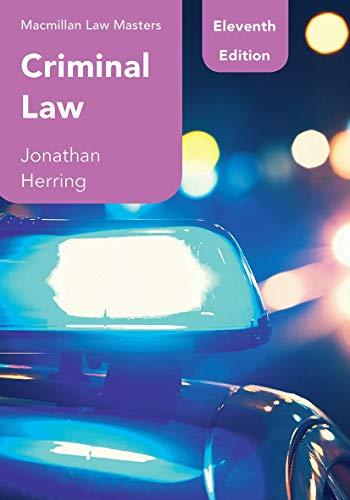Question
Viral marketing may be regarded a contract under the Contract Act 1950(section 18A) and the Transfer of Property Act 1979, (article 14). Break of the
Viral marketing may be regarded a contract under the Contract Act 1950(section 18A) and the Transfer of Property Act 1979, (article 14). Break of the contract is penalized in the same way that a breaking of a written contract is. The loss amount is obliged to be paid by the Shocks on Us corporation, as evidenced by the Air Studios (Lyndhurst) Limited T/A Entertainment Group v Lombard North Central PLC (2012) case. According to the Word of Mouth Law's oral modification clause, Richard is entitled to compensation if he can establish his loss through written documents2.A precedent from of the Tom Nestle v. Cindy SHUSHEREBA (2013) judgment may be used in the current loop. In that case, Oren was ordered to pay the alleged amount. If the homeowner George goes the court and disputes with any wave off arrangement, Richard is obligated to pay the additional $3 billion dollars under the terms of the Residential tenancies Act 1985 (Section 18). Nevertheless, if Dick can present any proof to Andrew's oral promise, the amount owed to him may be reduced.
Finally, the Uber v Aslam case can be used as an example. At the front of the labour court, the Uber drivers' claim was allowed. The question of not recognizing the before the merchandise may be explored in this instance. The problem would be that Tom failed to execute a sales contract with Richard. According to the Product Liability and Cautiously, signing an agreement with a customer at the time of purchase verification is required. As a result of this failure, the court is more inclined to abandon Richard's appealing if he calls the court4.
The case of Bolton v Needs to be completed [1972] may be provided in order to provide light mostly on final case. In this instance, the appellant was paid the contract value less the cost of deficiencies. Likewise, Martin may argue that Richard has not kept his promises in this situation. Nevertheless, given the silliness of a case, the magistrate may request that the defendant and respondents resolve their differences.
As a business law student how can you explain this sort of silliness ?
How can it be solved based on lawful requirements?'
Explain the application of the law in this case ?
What is the conclusion of all this ?
Step by Step Solution
There are 3 Steps involved in it
Step: 1

Get Instant Access to Expert-Tailored Solutions
See step-by-step solutions with expert insights and AI powered tools for academic success
Step: 2

Step: 3

Ace Your Homework with AI
Get the answers you need in no time with our AI-driven, step-by-step assistance
Get Started


